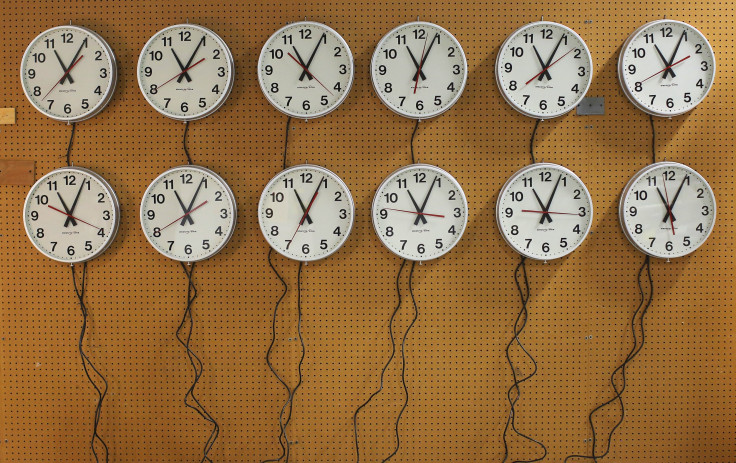Daylight Saving 2017: 3 Tips For Changing Your Clock

As sun rays wisp across your face Sunday morning, you wipe your crusty eyes and reach for your phone, attempting to determine what time it is so you can figure out how much longer you can sleep. Your heart jumps as you realize it’s much later than you expected because it's time to give up that extra hour you snagged back in the fall and welcome Daylight Saving Time — even though you didn’t plan ahead for your boozy Sunday brunch.
Don’t be this person. At least try to plan ahead so you aren’t in a scramble to make brunch, show up for an afternoon date or get some chores done around the house.
Read: Montana Resists Springing Forward
Beginning at 2 a.m. EST Sunday, Americans will have to manually reset their clocks one hour earlier and, unfortunately, probably lose a little bit of sleep.
Here are three tips on how to do deal with daylight saving time in 2017.
1. Almost everyone relies on a cellphone or other mobile device to check the time. But if you have a traditional digital or analog clock at home that you regularly use, perhaps set an alarm on your phone that will go off around bedtime Saturday night and just move your clock ahead before Daylight Saving Time officially takes place.
2. As with almost every common problem these days, there are apps for Daylight Saving Time. If you use Apple’s iPhone, an app appropriately called “Daylight Saving Time” can tell you the exact time to switch your clocks no matter your time zone. For Android users, there are a number of apps like “Time ZoneDB,” which serves as a complement to “Clock Sync” and several others on Google Play.
Read: Why Do We Switch For Daylight Saving?
3. Losing that extra hour of valuable, sweet sleep can seriously throw off your day or week until you’ve adjusted to the new time. According to WebMD, one tip to help with the adjustment is to take a nap in the afternoon but not near your regular bedtime. Furthermore, you should try not to sleep in for more than an hour so your body can adjust over the next several days.
© Copyright IBTimes 2025. All rights reserved.





















